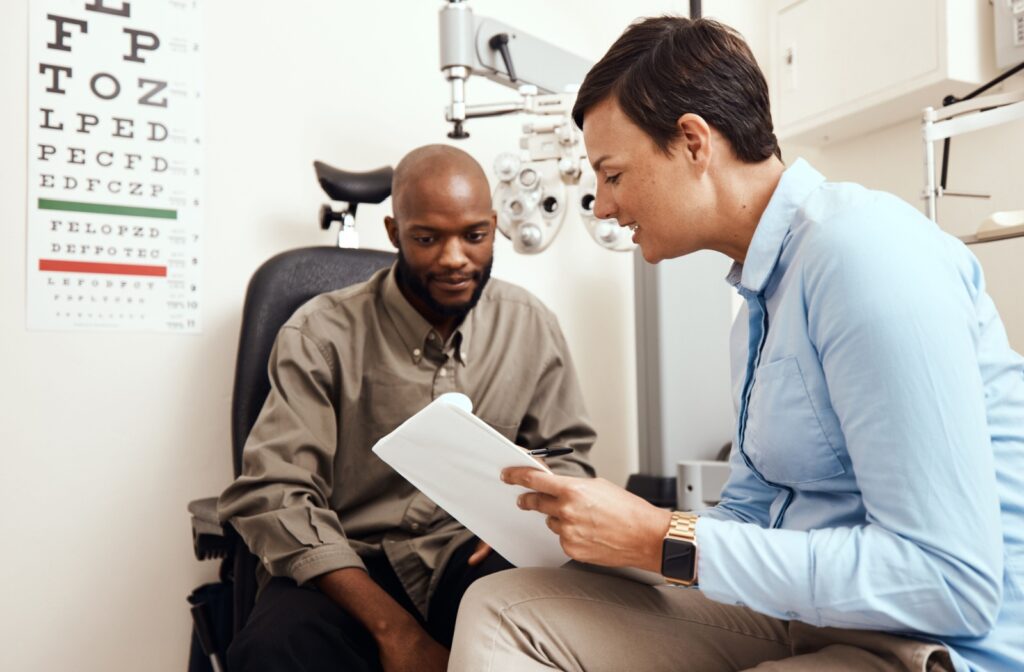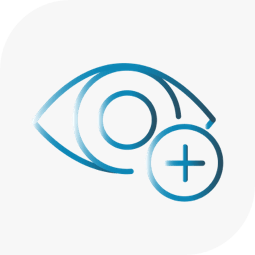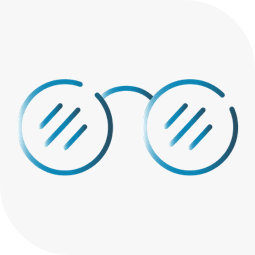Your vision is invaluable—it helps you navigate and experience the world around you. However, eye conditions can develop silently, affecting your quality of life. One of the most common and subtle threats is glaucoma, often called “the silent thief of sight.”
Glaucoma is an eye condition that affects the optic nerve, with a strong genetic link. While lifestyle factors can also play a role, a family history of glaucoma significantly increases your risk. Since glaucoma can develop without noticeable symptoms, routine eye exams are essential for early detection and protection against vision loss.
What Is Glaucoma?
Glaucoma is a group of eye diseases that gradually damage the optic nerve, which is responsible for transmitting visual information to the brain. This damage is often caused by increased intraocular pressure (IOP) due to poor fluid drainage inside the eye.
Your eye relies on a delicate balance of fluids to nourish its structures and remove waste. When these fluids cannot drain properly, pressure builds up, placing stress on the optic nerve. Over time, this can result in permanent vision loss—often without any warning signs.
Because of its hereditary nature, individuals with a family history of glaucoma are at higher risk. That’s why regular comprehensive eye exams are crucial for early detection.
The Different Types of Glaucoma
There isn’t just one type of glaucoma. In fact, there are plenty of different types, each with its own cause, symptoms, and effects. The 4 most common types are:
- Open-angle glaucoma
- Closed-angle glaucoma
- Normal tension glaucoma
- Secondary glaucoma
So what makes each of these unique?
Open-angle glaucoma
Open-angle glaucoma is the most prevalent form. It occurs when the eye’s drainage system (the trabecular meshwork) becomes less efficient over time. As a result, intraocular pressure gradually increases, damaging the optic nerve.
The challenge with open-angle glaucoma is that it develops slowly and without symptoms. Many individuals don’t realize they have it until significant vision loss has already occurred. Since genetics play a major role, those with a family history should schedule regular eye exams for early detection.
Closed-Angle Glaucoma
Unlike open-angle glaucoma, closed-angle glaucoma is a medical emergency. It occurs when the space between the iris and cornea is too narrow, causing a sudden and complete blockage of fluid drainage. This leads to a rapid increase in intraocular pressure, resulting in:
- Severe eye pain
- Headaches
- Blurry vision
- Halos around lights
- Nausea or vomiting
If you experience any of these symptoms, consult your optometrist at the earliest.
Normal-Tension Glaucoma
Normal-tension glaucoma occurs when optic nerve damage develops despite normal intraocular pressure levels. The exact cause isn’t fully understood, but contributing factors may include:
- An overly sensitive optic nerve
- Reduced blood flow to the optic nerve
- Structural weaknesses in the eye
Since normal-tension glaucoma lacks clear symptoms, routine eye exams are the best way to catch it early.
Secondary Glaucoma
Secondary glaucoma is triggered by another underlying condition, such as:
- Eye injuries (blunt trauma or penetrating wounds)
- Prolonged use of corticosteroids
- Other eye diseases, like uveitis or pigment dispersion syndrome or pseudoexfoliation syndrome
- Systemic health conditions, including diabetes and hypertension
Managing the underlying cause is key to controlling secondary glaucoma and preventing further complications.
Tips for Lowering Your Risk of Glaucoma
While you can’t eliminate genetic risk, you can take steps to protect your eye health:
- Maintain a healthy diet and active lifestyle
- Exercise regularly to promote circulation and eye health
- Avoid smoking and excessive alcohol consumption
- Manage blood pressure and overall cardiovascular health
- Protect your eyes from injury with appropriate eyewear
- Schedule regular eye exams to monitor changes in your vision
These proactive habits can help safeguard your long-term eye health and reduce the risk of developing glaucoma.
Get Checked For Glaucoma!

Glaucoma is a serious condition, but early detection makes all the difference. At Collingwood Optometry & Cwood Eyecare, we specialize in comprehensive eye exams to detect and manage glaucoma before it affects your vision.
Don’t wait until symptoms appear—schedule an appointment today to keep your eyes healthy for years to come!























